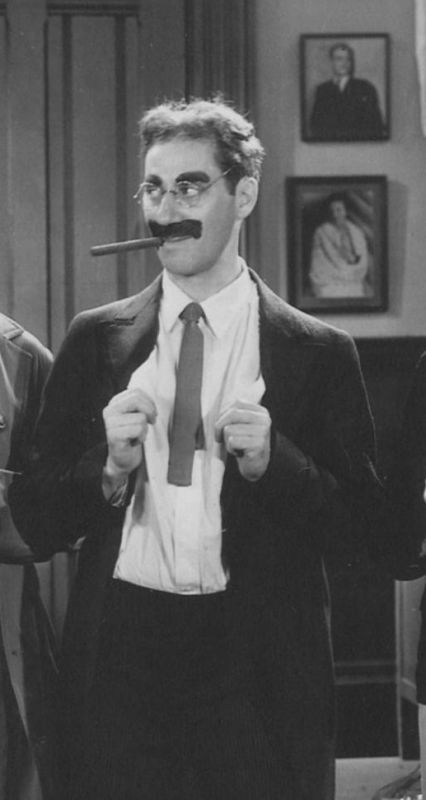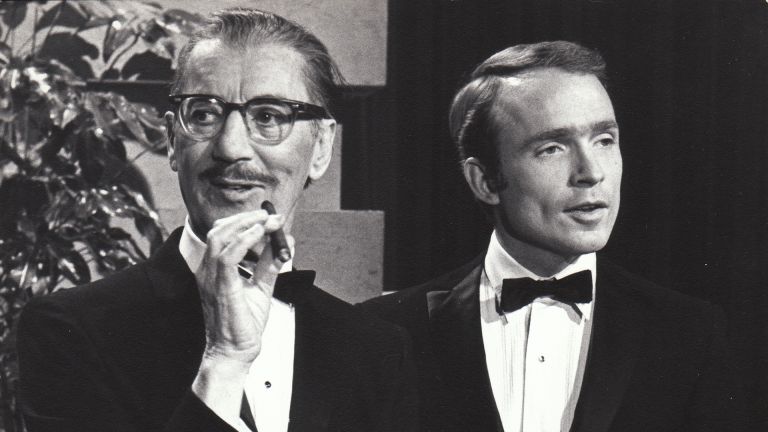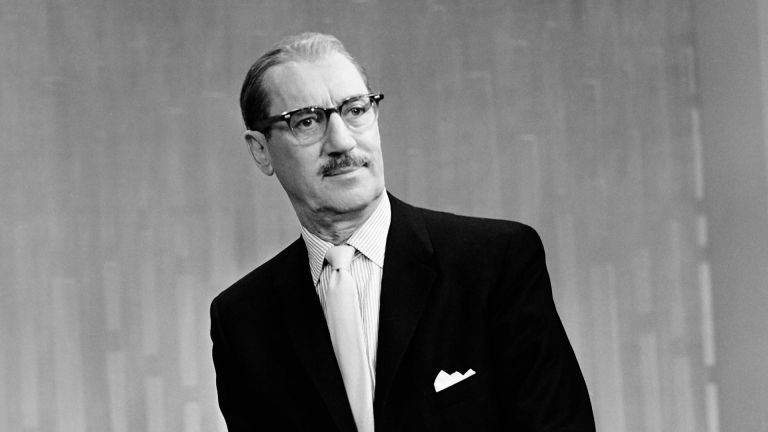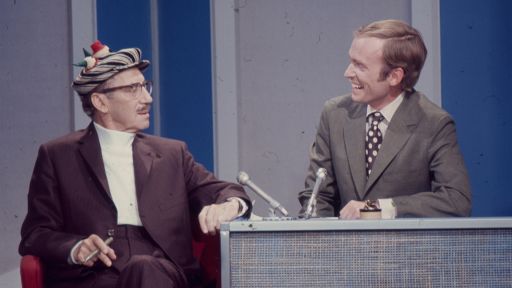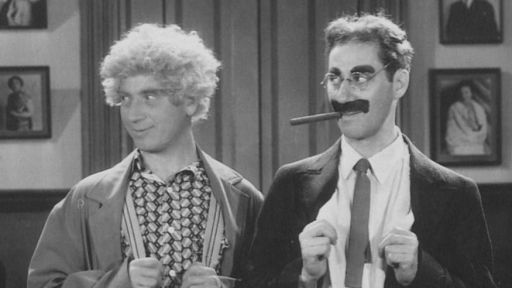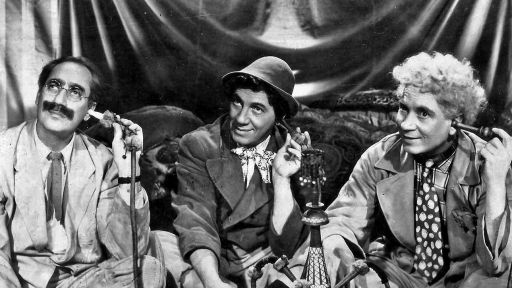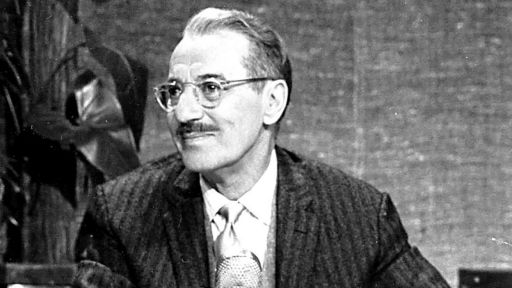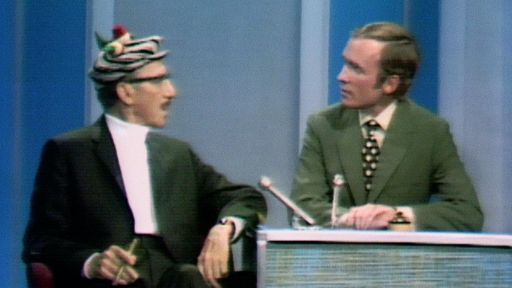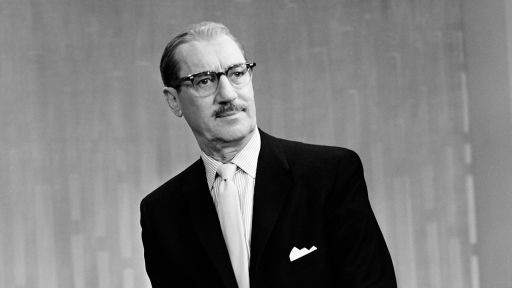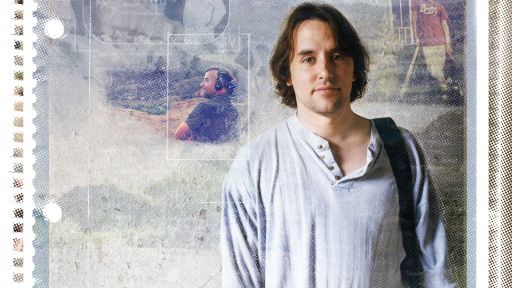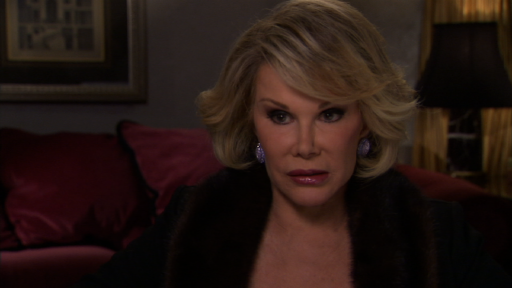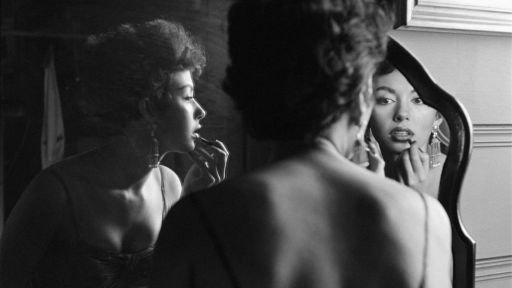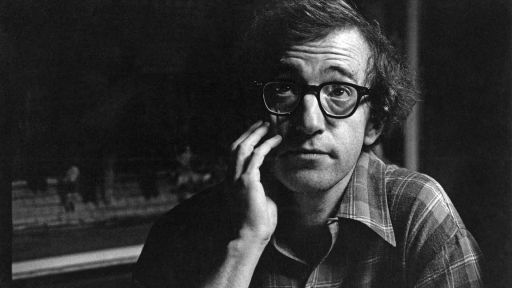In our ever-expanding media universe, wonderfully entertaining things are naturally bound to get lost or overlooked. With so many choices available, it isn’t obvious that there may be something incredibly relevant that happens to have been made 80 or 90 years ago. In fairness, a lot of what passed for humor nearly a century ago barely makes sense today, but there are notable exceptions. The Marx Brothers, for example, continue to make sense.
Will it ever go out of fashion to lampoon war or college as they did in “Duck Soup” and “Horse Feathers”? Skewering the pompous, as the Marxes did in “A Night at the Opera” and “A Day at the Races,” remains a popular theme in modern humor. Groucho Marx is the foremost comedic hero in these pursuits and no one has ever done it better. Groucho’s unique style and brilliant wit shine through in any type of media.
Here are some known (and lesser known) places to start with Groucho Marx:
Even in the small doses available on YouTube, Groucho delivers. In fact, he may even be the perfect solution for a world with a short attention span. The Marx Brothers’ films are classics and are generally available in numerous technologies, but a few well-chosen clips from “You Bet Your Life,” Groucho’s 1950s television quiz show, could be enough to turn a casual web-surfer into a lifelong fan.
Here are six Marx Brothers movies not to miss (no spoilers here):
1. “Animal Crackers” (1930)
2. “Monkey Business” (1931)
3. “Horse Feathers” (1932)
4. “Duck Soup” (1933)
5. “A Night at the Opera” (1935)
6. “A Day at the Races” (1937)
A deeper dive into the riches of Groucho’s legacy may lead to the printed word. Groucho admired and befriended several major literary figures. His books remain in print and are often laugh-out-loud funny. Groucho would be the first person to tell you that he wasn’t as proficient a writer of humor as Robert Benchley, S.J. Perelman or James Thurber. But while much of their material still holds up, they stand a much smaller chance of being discovered by new readers than Groucho does. After you watch “Duck Soup” or “Monkey Business,” pick up a copy of “The Groucho Letters” or “Groucho and Me.” You won’t be disappointed.
Groucho’s appearances on “The Dick Cavett Show” provided a third act for the comic legend—the films and his quiz show being acts one and two. Late in his life, Groucho still had a razor-sharp mind and a quick wit. And talk shows had no script, so Groucho was truly winging it, as only he could. His work continues to influence generations of comedians. Groucho’s influence has appeared in many forms, and millions of people may not even realize how much they’ve enjoyed his comic persona over the years.
Here are some places you will find Groucho Marx’s influence today:
It isn’t unusual to see Groucho and his brothers turn up in animated form on “The Simpsons,” or to see a wisecrack delivered on stage or screen with a Groucho-like wiggle of the eyebrows.
Ever see a Bugs Bunny cartoon? The wisecracking rabbit owes Groucho a lot. He even put on Groucho’s iconic costume and makeup in a few cartoons.
“You Bet Your Life” keeps coming back, most recently with Jay Leno. But as talented as the later hosts may be, Groucho is irreplaceable.
As Dan Rowan of “Rowan and Martin’s Laugh-In” fame pointed out to Groucho on an episode of “The Dick Cavett Show,” Groucho’s name became a stage direction. A script might instruct an actor to read a line as Groucho would—the implicit assumption being that anyone in a position to read a script would know exactly what to do. This is as good an example of iconic status as there is.
Groucho’s career reflected the development of modern show business.
He started on vaudeville stages as a teenager in 1905. Vaudeville was still relatively new at the time. His brothers soon joined him, and the Marx Brothers graduated to the legitimate stage with a string of Broadway hits in the 1920s. Movie stardom in Hollywood followed.
As the infant industry of radio came of age, Groucho was on the air. After the Marx Brothers retired from movie-making, he became a radio star. Groucho moved his show to television in 1950 and was suddenly as popular as he’d ever been in his 60s. He remained an occasional guest on television shows throughout the 1960s and 1970s and even returned to the stage for a concert tour in 1972. “An Evening with Groucho,” the album recorded during the tour put Groucho—by this time in his early 80s—on the Billboard charts with a hit record.
The same man who was a vaudeville contemporary of Al Jolson, Will Rogers and Sarah Bernhardt remained popular long enough to see his album on the charts alongside albums by Elton John, Rod Stewart and Black Sabbath.
Groucho was able to experience a phenomenal resurgence in popularity late in his life as college students and teenagers discovered the Marx Brothers and “You Bet Your Life” reruns on television in the 1970s. That generation of fans has kept Groucho in the public consciousness to this day. By the time of his death in 1977, Groucho had spent more than 70 years making people laugh. And he did it in whatever medium presented itself. It didn’t matter how he reached an audience. Funny is funny—whether the audience is 10 feet away in a theater, reading a book, or scattered around the country watching television.
Groucho is worth discovering for a generation or two of people who grew up being entertained by their computers and phones. He’s been gone for nearly 50 years, but funny is still funny. He left an enormous body of work that will continue to make people laugh for as long as funny remains funny.

